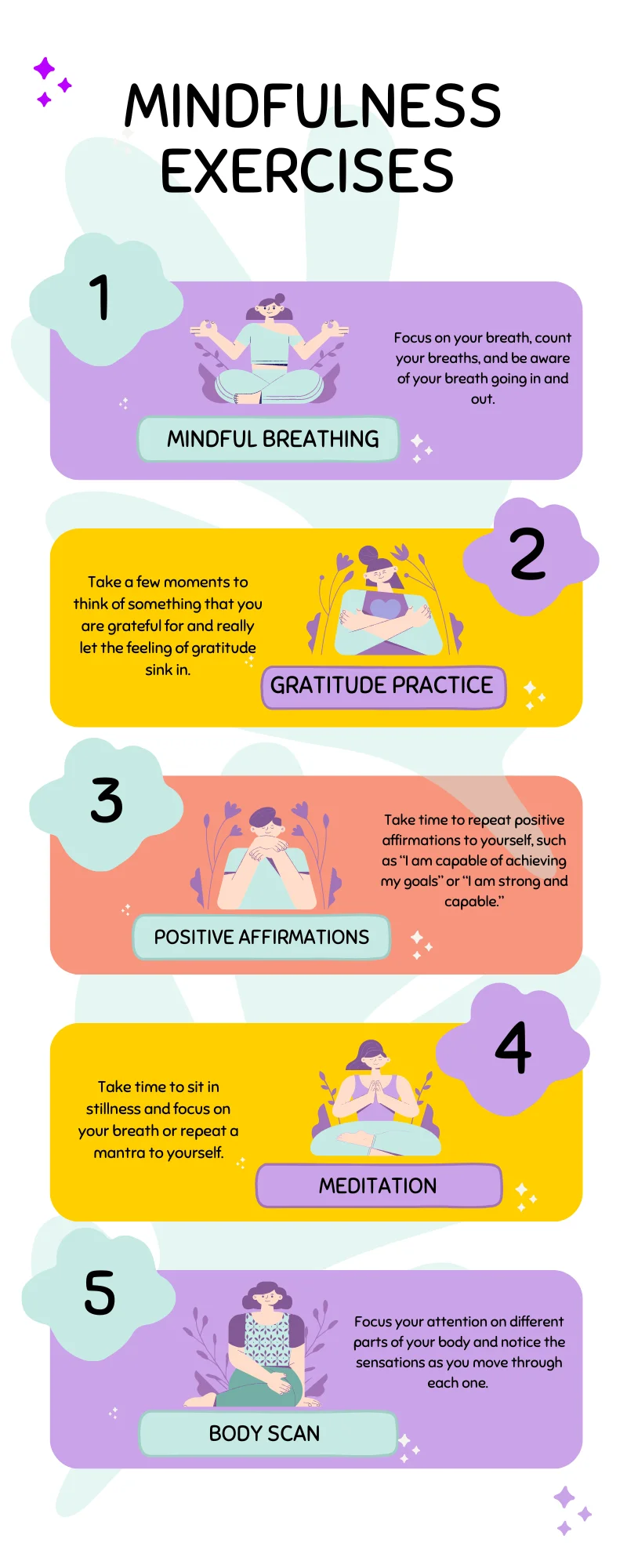Table of Contents
ToggleMindful Eating: Your Handbook
Mindful eating is a practice that helps you build a better relationship with food. It also helps you make healthier choices. It means paying attention to your body’s hunger and fullness signals. You should also consider your emotions and thoughts while eating.
By being more aware of your eating habits, you can make food choices that nourish your body, mind, and spirit. In this article, we will look at what mindful eating is. We will also discuss its benefits and how to add it to your daily life. Mindful Eating Your Handbook is this blog!
What is Mindful Eating?
Mindful Eating Your Handbook
Mindful eating is a practice that involves paying attention to the experience of eating, without any judgment or distraction. It is a form of mindfulness meditation that helps you develop a deeper connection with your food and the act of eating. Mindful eating is not a diet. It is a way to approach food and eating with curiosity, kindness, and awareness.
Mindful eating means being present and fully enjoying the experience of eating. It involves using all of your senses to savor the taste, texture, and aroma of your food. Mindful eating means paying attention to your body’s hunger and fullness signals. Stop eating when you feel satisfied, instead of overeating
Understanding the Importance of Conscious Eating
Conscious eating is the foundation of mindful eating. It is the act of paying attention to what you eat and how it affects your body and mind. Conscious eating means being aware of the nutrition in the foods you eat. It also includes understanding any emotional or environmental factors that affect your food choices.
Conscious eating can help you make better food choices that align with your values and goals. For example, if you want to lose weight, conscious eating can help. It allows you to pick foods that are low in calories and high in nutrients.
This is better than choosing processed foods that are high in sugar. If you want to reduce your carbon footprint, eating mindfully can help. It allows you to choose foods that are local and sustainably made.

The Benefits of Mindful Eating
There are many benefits to practicing mindful eating. Perhaps the most significant benefit is that it can help you develop a healthier relationship with food. By paying more attention to eating, you can better understand your body’s needs. This helps you make smarter food choices.
Mindful eating can also help you reduce stress and anxiety around food. When you practice mindfulness while eating, you can lower the urge to binge or overeat. This helps you enjoy the flavors and textures of your food more.
Other benefits of mindful eating include improved digestion, increased energy, and better sleep. Eating more slowly and mindfully can help your body digest and absorb nutrients better. This can lead to improved overall health.
Mindful Eating Versus Mindless Eating
Mindful Eating Your Handbook
Mindful eating is the opposite of mindless eating, which involves eating without awareness or intention. Mindless eating is often driven by emotional or environmental cues, such as stress, boredom, or the availability of food.
Mindless eating can lead to overeating, weight gain, and other negative health outcomes. By contrast, mindful eating can help you make more intentional food choices and reduce the urge to eat out of habit or boredom.
Mindful Eating Tips to Help You Eat More Intentionally
Mindful Eating Your Handbook
If you are new to mindful eating, there are several tips you can use to help you get started:
Slow down: Eat slowly and savor each bite. This will help you tune into your body’s hunger and fullness signals.
Eliminate distractions: Turn off the TV, put away your phone, and focus solely on eating.
Eat with all your senses: Pay attention to the taste, texture, and aroma of your food.
Practice gratitude: Before each meal, take a moment to express gratitude for the food you are about to eat.
Listen to your body: Pay attention to your body’s hunger and fullness cues, and stop eating when you feel satisfied.
Mindful Eating Exercises to Practice
There are several exercises you can practice to develop your mindful eating skills:
The Raisin Exercise: Take a raisin and examine it closely, using all of your senses. Notice its texture, smell, and taste.
The Mindful Meal: Sit down to a meal and eat it mindfully, paying close attention to the experience of eating.
The Three Bites Exercise: Take three small bites of a food you enjoy, savoring each bite and noticing the sensations in your body.
Eating Meditation Techniques
Mindful Eating Your Handbook
Eating meditation is a type of mindfulness meditation. It uses the act of eating as a way to focus during meditation. There are several techniques you can use to practice eating meditation:
Silent Eating: Eat your meal in silence, focusing solely on the experience of eating.
Mantra Eating: Repeat a mantra or affirmation to yourself as you eat, such as “I am grateful for this food.”
Visualization Eating: Picture the food you eat as good for your body and mind. Imagine each bite giving you energy and strength.
How to Incorporate Mindfulness into Your Eating Habits
Mindful Eating Your Handbook
Incorporating mindfulness into your eating habits can be a gradual process. Here are some steps you can take to make your eating habits more mindful:
Start small: Begin by practicing mindfulness during one meal per day, and gradually increase the frequency over time.
Limit distractions: Eliminate distractions, such as TV or your phone, during meals.
Listen to your body: Notice when you feel hungry or full. Eat when you are hungry and stop when you are full.
Practice gratitude: Express gratitude for your food before each meal, and appreciate the nourishment it provides.
Mindful Eating Resources and Tools, Including the Center for Mindful Eating
There are several resources and tools available to help you develop your mindful eating skills. The Center for Mindful Eating is a non-profit group. It offers resources, workshops, and training for people and professionals who want to learn about mindful eating.
You can find other resources like books, apps, and online courses. These can help you learn more about mindful eating and improve your skills.
Conclusion and the Future of Mindful Eating
Mindful Eating Your Handbook
Mindful eating is a helpful practice. It can improve your relationship with food and boost your well-being. When you focus more on eating, you can choose foods that better nourish your body and mind.
As more people show interest in mindfulness and wellness, mindful eating will likely become more popular. By practicing mindful eating every day, you can connect better with your food and the act of eating. This can help you enjoy the many benefits of this powerful practice.
If you want to learn more about mindful eating, visit the Center for Mindful Eating. You can also find books, apps, and courses on this topic. Start small by practicing mindfulness during one meal per day, and gradually increase the frequency over time.
With practice, you can develop your mindful eating skills and experience the many benefits of this powerful practice.
Affiliate Disclosure:
The links contained in this product review may result in a small commission. This goes towards supporting our research and editorial team and please know we only recommend high-quality products.
Note: This article is for informational purposes only and is not intended to diagnose, treat, or cure any disease. Always consult a healthcare professional before taking any supplement or making any changes to your diet or lifestyle.
Resources:
- Eating Disorders Victoria – This website provides information on mindful eating and also includes dates for upcoming mindful eating workshops.
- Eating Mindfully – This website contains information about mindful eating and offers books by Susan Albers.
- The Center for Mindful Eating (TCME) – TCME provides a wide variety of resources and training for those seeking up-to-date information about mindful eating practices, research, and education.
- Healthline: Mindful Eating 101 — A Beginner’s Guide
- Action for Healthy Kids: Mindful Eating
- VA Whole Health Library: Mindful Eating: Enhancing Your Relationship with Food




